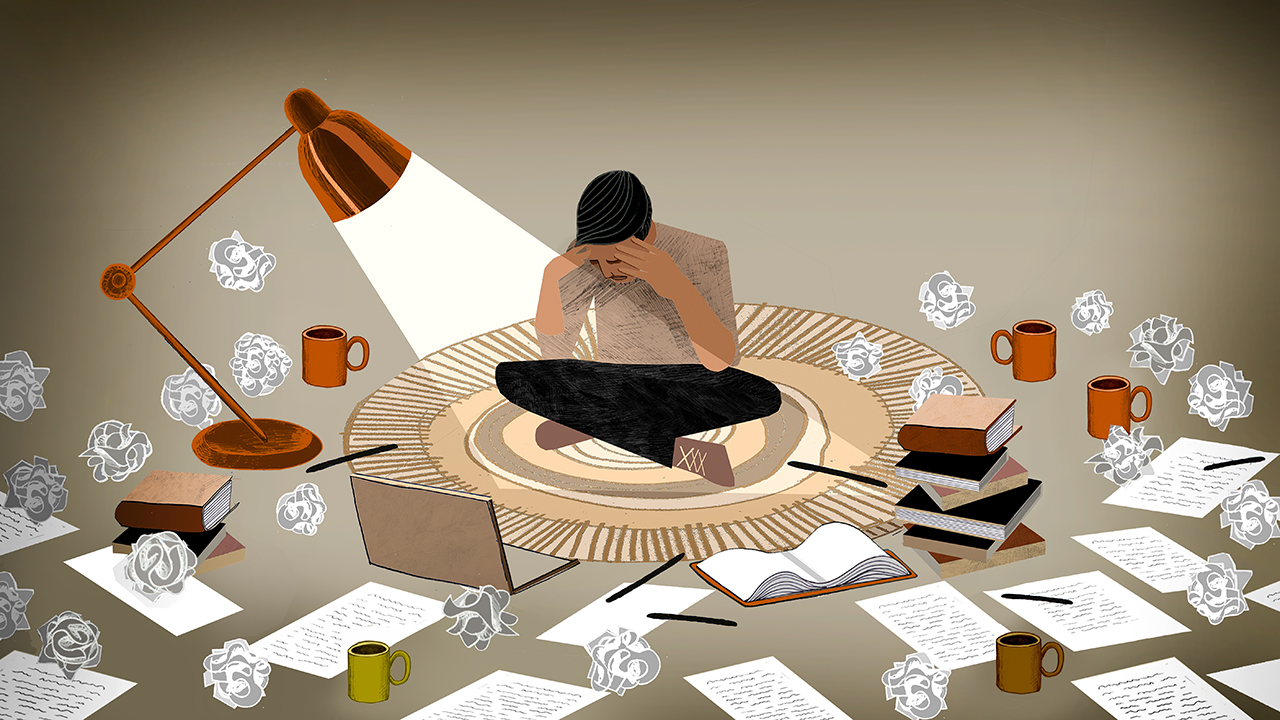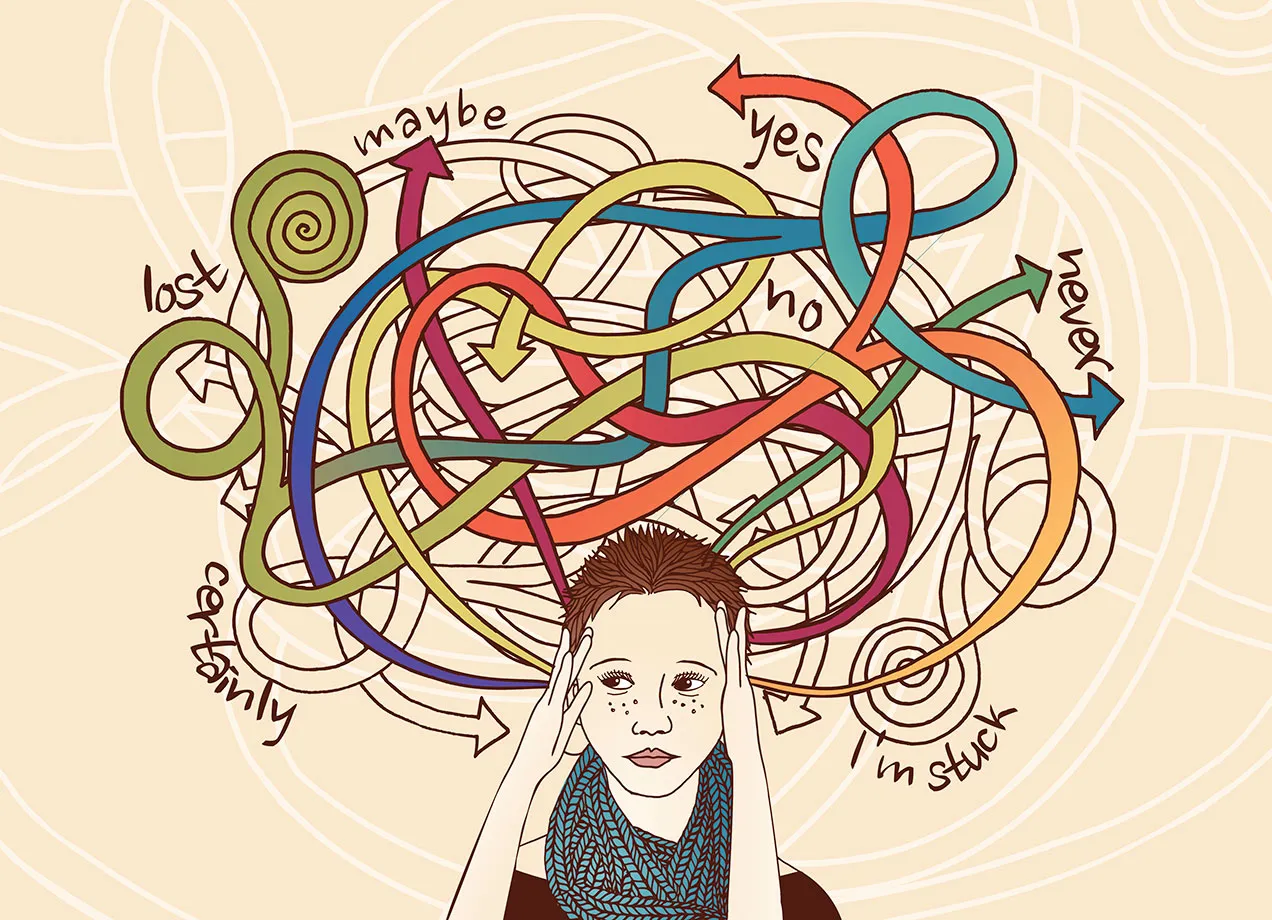Table of Contents
Decision Paralysis: No Decision, No Life!
The last few years have been nothing short of a nightmare. Each year brought decisions tougher than the last, with situations tossing career plans, health, and everything else one could imagine right out of the park. The whirlwind of uncertainty and unrelenting challenges can leave anyone feeling overwhelmed and paralyzed by the weight of choices yet to be made. This paralysis—where inaction becomes the default response to overwhelming choices—can dramatically impact our lives, preventing us from moving forward and experiencing the fullness of life.
Understanding Decision Paralysis

Decision paralysis occurs when the fear of making the wrong choice leads to a complete standstill. This state of inaction often stems from a combination of factors, including fear of failure, the complexity of the decision, and the overwhelming amount of available information. The intention behind delaying decisions might seem like a cautious approach to avoid mistakes or negative outcomes. However, it usually leads to a vicious cycle where the more one delays, the more daunting the decision becomes.
- Overanalyze: Many people find themselves stuck in a loop of overanalysis, examining every possible outcome and scenario in an attempt to make the “perfect” choice. This endless scrutiny can paralyze decision-making, as the fear of making a wrong choice overshadows the ability to act.
- Seek Excessive Input: Another common behavior is seeking excessive input from others. While consulting friends, family, or experts can be valuable, constantly gathering opinions can lead to confusion and further delay. Each person’s perspective might bring new considerations, making the decision even more complicated.
- Procrastinate: Procrastination is a natural response to feeling overwhelmed by a decision. Delaying a choice in the hope that more time will lead to greater clarity is a common pitfall. However, this delay often results in increased anxiety and a growing sense of pressure.
- Avoid the Issue: Some people choose to avoid the decision altogether, hoping that the issue will resolve itself or that someone else will step in to make the choice. This avoidance can lead to missed opportunities and unresolved issues that compound over time.
- Perfectionism: The quest for a flawless decision can be paralyzing. Perfectionism creates unrealistic standards, making it nearly impossible to make a decision that meets every criterion. This fear of imperfection can stall progress and hinder decision-making.
The Paradox of Procrastination

While the intention behind delaying decisions might be to avoid mistakes or negative consequences, procrastination typically exacerbates the problem. Instead of finding a better solution, inaction can lead to more significant issues down the line. Here’s how:
- Missed Opportunities: Inaction can result in missed opportunities. The longer you wait to make a decision, the fewer opportunities you may have to act. Opportunities often have a limited window, and delays can lead to the loss of valuable chances for growth and progress.
- Increased Anxiety: The weight of unresolved decisions can build up over time, leading to increased stress and anxiety. The more you delay, the more the uncertainty and fear of making the wrong choice can overwhelm you. This stress can impact your overall well-being and decision-making ability.
- Diminished Progress: Stagnation is a natural consequence of avoiding decisions. Whether in personal goals, career moves, or relationships, avoiding decisions halts progress and improvement. Without making choices and taking action, growth and development are stunted.
- Cumulative Impact: Each delay can compound, leading to larger, more complex decisions in the future. What starts as a small decision can become a major issue if left unresolved. This accumulation of unresolved choices can make future decision-making even more daunting and challenging.
Embracing Decision-Making

To counteract decision paralysis and avoid the trap of no decision equating to no life, consider these strategies:
- Set Deadlines: Give yourself a specific timeframe to make a decision. Deadlines create a sense of urgency and encourage action. By setting a deadline, you force yourself to evaluate the situation and make a choice within a defined period, preventing endless deliberation.
- Prioritize Decisions: Not all decisions carry the same weight. Focus on making decisions that significantly impact your life. For smaller choices, aim to make quick, informed decisions without extensive analysis. Prioritizing decisions helps you manage your time and energy more effectively.
- Accept Imperfection: Recognize that no decision will be perfect. Every choice involves some level of risk and uncertainty. Embrace the possibility of making mistakes as part of the learning process. Accepting imperfection allows you to make decisions with confidence and move forward.
- Gather Essential Information: Collect enough information to make an informed decision but avoid getting bogged down by excessive details. Determine the key factors that will influence your choice and focus on those. Gathering essential information helps you make a well-rounded decision without becoming overwhelmed.
- Take Action: Once you make a decision, commit to it and take action. Momentum can often resolve the fears and uncertainties that led to indecision. Taking action propels you forward and allows you to address any challenges that arise along the way.
Moving Forward with Optimism

In the face of life’s toughest decisions, it’s easy to feel trapped in a cycle of fear and inaction. However, remember that the essence of living fully is tied to the decisions you make and the actions you take. While the uncertainty and challenges can be daunting, they also present opportunities for growth and transformation.
By embracing decision-making and breaking free from paralysis, you open yourself up to new possibilities and experiences. Each decision, whether successful or not, contributes to your journey and personal development. Stay optimistic and recognize that every choice is a step toward a brighter future. Life’s challenges and decisions are part of the process of discovering who you are and what you can achieve.
Conclusion: Just do it!

In the end, making decisions—even difficult ones—is an essential part of living a dynamic and fulfilling life. Embrace the uncertainty, take decisive action, and trust in your ability to navigate through the complexities of life. By doing so, you’ll find yourself moving forward, growing, and fully experiencing the richness of life.
